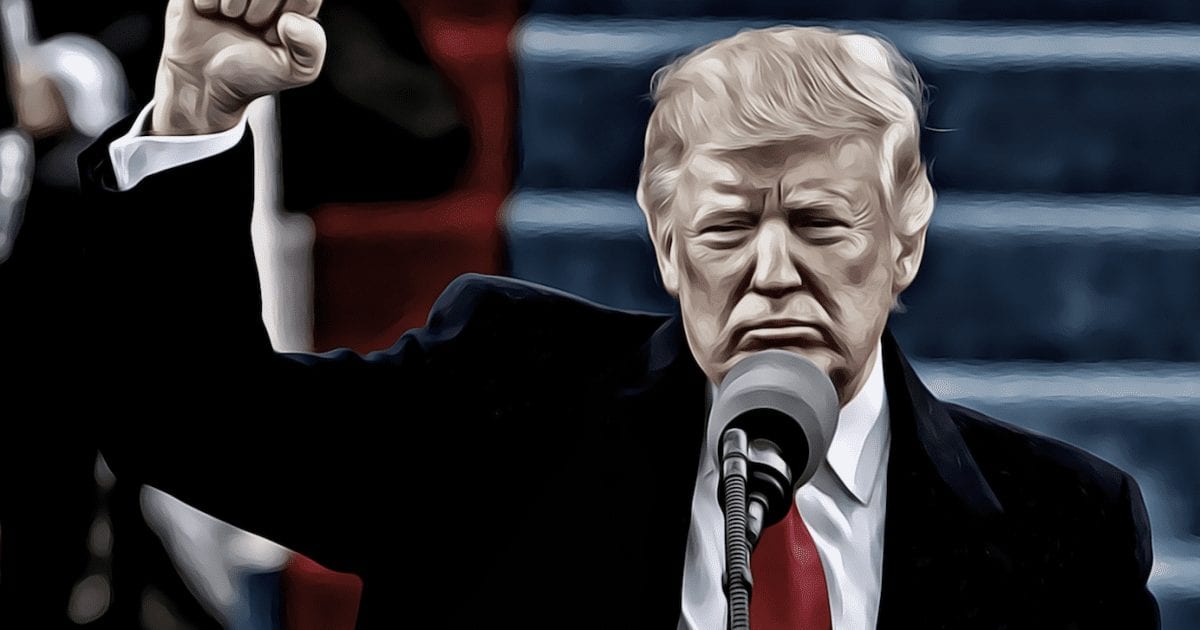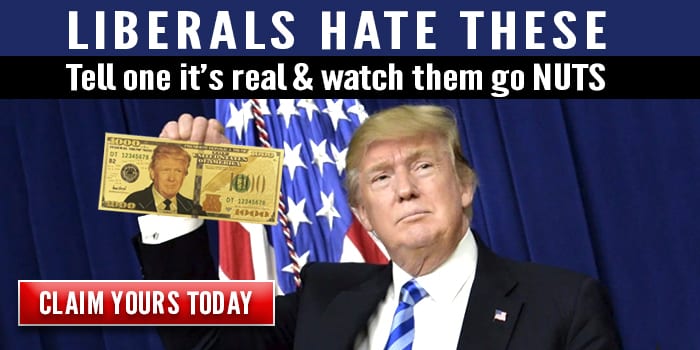When will people learn?
They think President Trump just runs his mouth randomly with no backup.
How stupid.
The smart among us have been paying attention and realizing that President Trump RARELY speaks without already having the ammunition already in the bag.
And such was the case on Friday when he ordered all American companies out of China:
CNN claimed he had no authority to do so:
But today President Trump cleared the record:
The Hill had more:
Trump had previously cited the 1977 act, which gives the president the power to regulate commerce during exceptional international crises, earlier Friday before departing for the Group of Seven summit in France.
In a string of tweets Friday morning, the president said he was ordering U.S. companies to “immediately start looking for an alternative to China,” beginning with making their products in the United States.
“The vast amounts of money made and stolen by China from the United States, year after year, for decades, will and must STOP. Our great American companies are hereby ordered to immediately start looking for an alternative to China, including bringing your companies HOME and making your products in the USA,” Trump tweeted.
His language drew a swift reaction on social media from those who mocked his formal decree.
Prominent conservative lawyer George Conwaytweeted Friday that Trump should be sent to Walter Reed Medical Center and that his Cabinet should declare him unfit to be president following his declaration.
"I hereby order the White House staff to take @realDonaldTrump to Walter Reed, and to convene the cabinet under Section 4 of the Twenty-fifth Amendment," he wrote, adding the trending hashtag "#Iherebyorder." The husband of White House counselor Kellyanne Conway is a frequent critic of the president.
Did CBS Just Publish The Infamous “Clinton Kill List”?
A number of news outlets, in turn, published articles employing Trump's formal language to question whether he had the authority to make such a command.
Claude Barfield, an expert in international trade policy at the American Enterprise Institute, told The Hill that Trump doesn’t have any authorities to direct U.S. companies to move their businesses to the United States. He called the tweets a clear example of Trump “popping off” and predicted his advisers would look to do damage control, especially if his remarks negatively impact the stock market.
Jennifer Hillman, a Georgetown University law professor and trade expert at the Council on Foreign Relations, told The Washington Post that Trump does not have the power to "duly order" companies out of China, but he does have the authority under the International Emergency Economic Powers Act to prevent future transfers of funds to Beijing.
Hillman added that Trump can make such a move only "if he has first made a lawful declaration that a national emergency exists," noting that Congress could ultimately end the declaration.
Reuters confirmed:
Trump could treat China more like Iran and order sanctions, which would involve declaring a national emergency under a 1977 law called the International Emergency Economic Powers Act, or IEEPA.
Once an emergency is declared, the law gives Trump broad authority to block the activities of individual companies or even entire economic sectors, former federal officials and legal experts said.
For example, by stating that Chinese theft of U.S. companies’ intellectual property constitutes a national emergency, Trump could order U.S. companies to avoid certain transactions, such as buying Chinese technology products, said Tim Meyer, director of the International Legal Studies Program at Vanderbilt Law School in Nashville.
Trump used a similar strategy earlier this year when he said illegal immigration was an emergency and threatened to put tariffs on all Mexican imports.
Dan Bongino Exposes Obama, Mueller and Comey: “The Biggest Scam In American History”
Past presidents have invoked IEEPA to freeze the assets of foreign governments, such as when former President Jimmy Carter in 1979 blocked assets owned by the Iranian government from passing through the U.S. financial system.
“The IEEPA framework is broad enough to do something blunt,” said Meyer.
Using it could risk unintended harm to the U.S. economy, said Peter Harrell, a former senior State Department official responsible for sanctions, now at the Center for a New American Security. U.S. officials would need to weigh the impact of China’s likely retaliation and how U.S. companies would be affected.




Join the conversation!
Please share your thoughts about this article below. We value your opinions, and would love to see you add to the discussion!